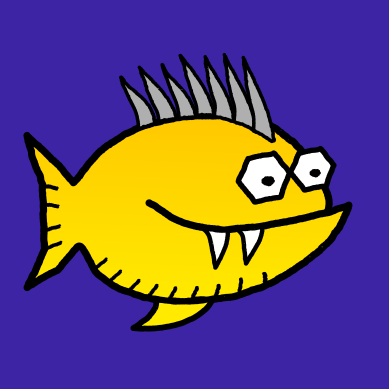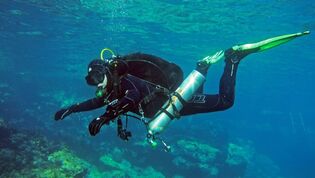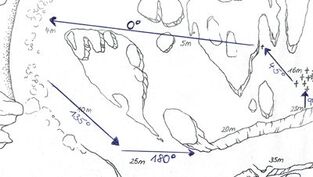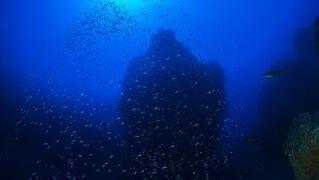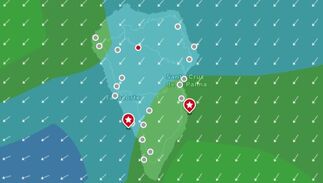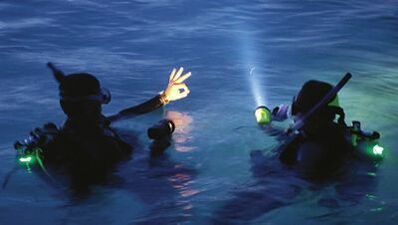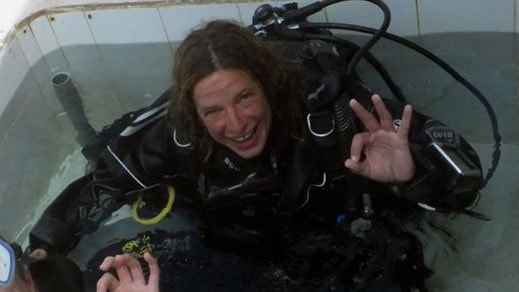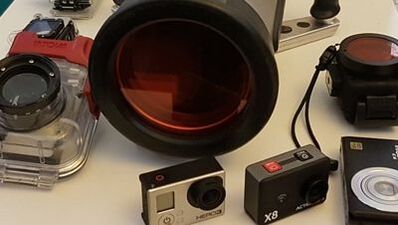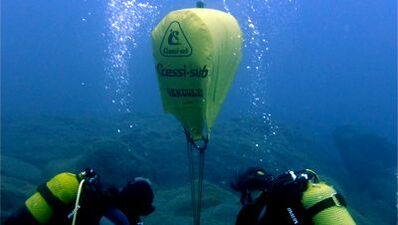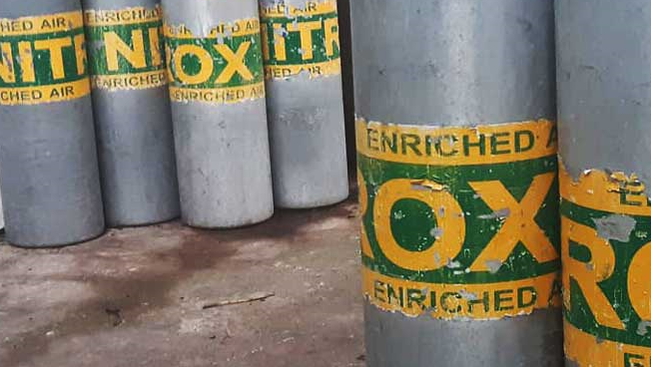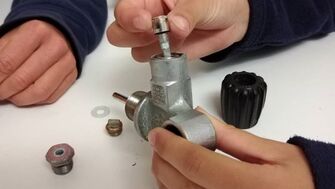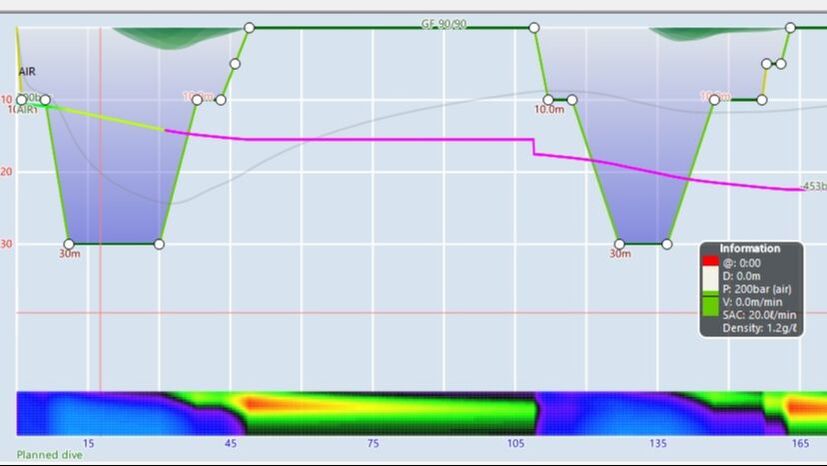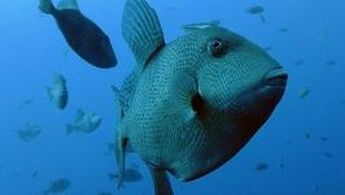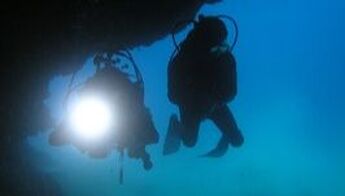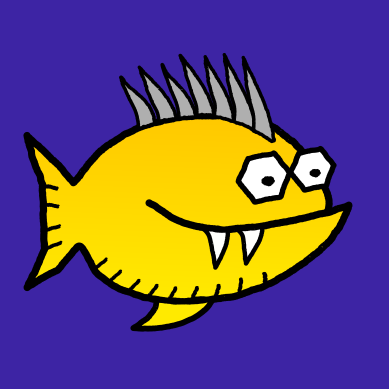Dive your way - train your way: Speciality Courses
We are all divers, but we do not all have the same interests. Some divers love to be in the shallow, coulourful water and search for all kinds of marine life, others enjoy to float, others search the depth and the adventure.... Some need the light, some love to dive at night or get into caves... Some just want to relax, others want to do more different things....
The good thing is that diving education fits to all needs and interests. You decide what you want to learn, and we show you the best possible way to achieve it. To become trained in different fields, the Specialty courses offer you a variety of things you can do - it's up to you!
On this page, you find the most common Specialties and the Diving Knowledge Courses. As the Stress & Rescue is so important, we created a seperate page for this and the Dive Guide. For more advanced Specialty courses, check the Extended Range section aswell.
Once you completed two Specialties and 12 Dives, you will get the recognition as a Specialty Diver. With four courses and 24 dives, you reach the SSI Advanced Open Water Diver qualification, and with the Stress & Rescue on top and a minimum of 50 dives you can call yourself a Master Diver.
The good thing is that diving education fits to all needs and interests. You decide what you want to learn, and we show you the best possible way to achieve it. To become trained in different fields, the Specialty courses offer you a variety of things you can do - it's up to you!
On this page, you find the most common Specialties and the Diving Knowledge Courses. As the Stress & Rescue is so important, we created a seperate page for this and the Dive Guide. For more advanced Specialty courses, check the Extended Range section aswell.
Once you completed two Specialties and 12 Dives, you will get the recognition as a Specialty Diver. With four courses and 24 dives, you reach the SSI Advanced Open Water Diver qualification, and with the Stress & Rescue on top and a minimum of 50 dives you can call yourself a Master Diver.
Peak Performance Bouyancy
|
|
When you turn around do you still discover a cloud of sand behind you? You think it is a bit difficult to hover in the middle of the water?
The Peak Performance Buoyancy Course will help you to dive more comfortably, use less weights, and be able to float perfectly neutral mid water. It is a good course for Beginners, and for everyone who has been out of diving for a while and wants to re-train a bit before going for the more difficult dives. You will dive better after it, and very likely reduce your air consumption significantly. |
Under Water Navigation
|
|
Be honest: If your guide would disappear somewhere during the dive, would you be able to find your way back? If you have no idea how to do that, prpbably it is time for the navigation specialty.
In this course, you will learn how to use the compass - and as well, or even more, how to read the landscape. You will start to find the way on your own, and hopefully manage to find your way on a new divesite at the end of the course. |
Deep Diving
|
|
You love the tranquility down in the depth, and the deep, dark blue attracts you? In this case, the Deep Diver Speciality provides you with the training to explore the depth up to 40m. In four dives, you learn more about air management, emergency procedures, and will test how you react on the nitrogen narcosis.
|
Waves, Tides & Currents
|
The ocean is a big miracle..... Tide comes, tide goes, one day it plays angry with high waves, the next day you find it flat like a sleeping baby.
If you want to understand at least a part of it, be able to read the windforecast and the tide calendar, and learn how to handle some currents and do a proper entry and exit even when it is a bit rough, this is the course you want to do. |
Night Diving
|
|
The sun disappears - and the party starts. The Moray eels start hunting, the octopuses come out, thousands of small shrimps with their shining eyes are on the rocks - when its dark, you see even more than at daylight.
To dive in the night, you need some special knowledge about how to communicate with the lights, how to orientate and where to look - that's what you can learn in the Night Diver Speciality Course. |
Dry Suit Diving
|
If you are constantly getting cold, but you want to dive everywhere, not just in tropical waters, you definitly need to do the step and dive with a dry suit. It looks a bit strange, and feels weird in the beginning - but it is really easy to learn. With some exercises in shallow water and some dives to get used to it, you will be able to handle this new part of equipment easily. And when you are nice and warm after the dive, you will know that this is exactly what you need.
|
Underwater Photography and Videography
|
You just got yourself a Digital Underwater Camera, but your pictures are not what you expected? Then it could help to take some dives with an experienced photographer, learn how to position yourself to find the right angle, and how to get enough light. After the dives, you will check your pictures together and give them a bit of Make-Up with an easy picture program.
|
Search & Recovery
|
Your camera just disappeared and you want to find it back? Or you found something in the water that you want to bring to the surface, but it is too heavy?
Then you can go for the Search & Recovery Speciality. You will learn how to dive search patterns following your compass, how to choose the proper pattern for the size of the item you are looking for and the visibility, and play with a lifting bag. We might move an anchor around, or a stone to a place where it just looks better - what ever we do you will have a lot of fun. |
Enriched Air Nitrox
|
There is always a lot of air left when you reach the no-decompression limit? You are planning to do lots of dives in a row, and want to stay safe? Then it is time to get your Nitrox certification.
When you breathe enriched air, you have a lower percentage of nitrogen and therefore saturate less. This leads to longer bottom times, and gives you the possibility to do longer repetitive dives on the same day. However, there are some things you need to know about the effects of the higher percentage of oxygen on your body. This is why we do some theory, practice how to check the content of your bottle and how to mark it properly, and learn how to plan a dive and set your computer for a Nitrox dive. |
Equipment Techniques
|
Your fin straps breaks, air escapes from your BCD or your regulator is slighty leaking and you already think about calling the dive, when some nice guide or buddy does something and it works again. If you want to be this nice person, you should get some more knowledge about your equipment - lots of small problems can be solved in seconds, and you can safely enjoy your dive.
In this course, you will learn some important details about your equipment, see a regulator, an inflator and a tank valve from inside to understand better how it works, and learn to do some easy maintenance. This does not make you a service technician, but a better, more informed diver, able to save a dive from time to time - and to take an informed decision about when you need to transfer the problem to a proper technician. |
Science of Diving
|
You really like swimming around under water, but you feel that you want to understand more about what you are doing there? You want to know exactly about the physics acting on your body, about what is happening with the nitrogen and which theories exist about the best decompression strategies? You want to understand your equipment, and learn more about the creatures you see under water?
The Science of Diving course gives you the whole diving theory. There is a lot to study, but you will see, all this knowledge is relevant and makes you dive - well, probably not better, but at least more informed. And if you want to become a Dive Pro or a Technical Diver, this knowledge is required aswell. |
Keep on training and become a better diver (Advanced Adventurer)
|
You've got your Open Water Diver - but you're still lacking a bit of experience and don't really know what you'd like to experience underwater.
That's what the Advanced Adventurer is for, a course that aims to introduce you to different areas of diving. Of course, it is essential that you can find your way underwater. So you should do a navigation dive and learn some techniques on how to find your way underwater with and without a compass. And because the sea doesn't stop at 18m, a deep dive to 30m can increase your knowledge and ability to plan and execute safe dives even at this depth. If you are not yet confident with your buoyancy and want to reduce your weights, it is a good idea to work towards "buoyancy perfection". If you are most interested in underwater life, you can move on to "Fish Identification" or "Naturalist". If you want to know how your dive computer works and how to dive a proper profile, "Computer Diving" is a good choice. If you are interested in taking pictures with you, you can get your first experience of underwater photography with "Underwater Photography". And if being in the water during daylight is not enough for you, "night diving" is also possible. In contrast to the OWD, no final exam awaits you in this course. Of course, you can't do without theory - that's why your material includes all the topics, and you can always read up on things you didn't do in the course. You read up, we explain a bit more than what's in the book - and then it's off into the water. With just five fun dives, you'll have a new certification and be able to dive to a depth of 30m. |
|
Scuba Speciality Courses
|
2-4 dives
Theory SpecialitiesNitrox Diver Level 2 (40%) 99 €
Science of Diving 199 € Equipment Techniques 99 € |
<price: per dive 50 € certificaton 45 € REAL AOWD 4 Specialities - 10 dives only 549 € |
SSI Advanced Adventurer
|
5 dives
|
Price: SSI Advanced Adventurer 259 € Certification included
|
